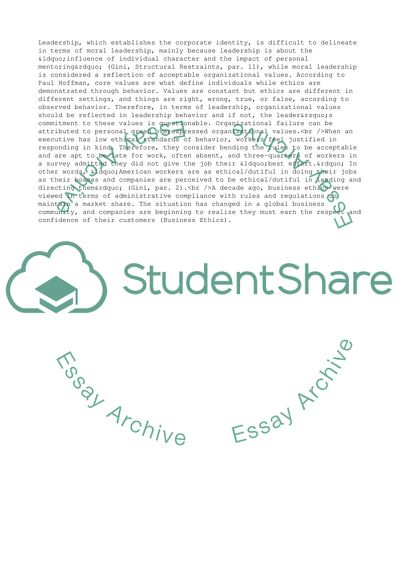Cite this document
(Ethical Leadership In The Business Intelligence Community Essay, n.d.)
Ethical Leadership In The Business Intelligence Community Essay. https://studentshare.org/business/1541135-what-is-the-relationship-between-leadership-and-ethics-why-they-must-be-related-and-how-they-can-be-related-in-daily-leadership-in-the-intelligence-community
Ethical Leadership In The Business Intelligence Community Essay. https://studentshare.org/business/1541135-what-is-the-relationship-between-leadership-and-ethics-why-they-must-be-related-and-how-they-can-be-related-in-daily-leadership-in-the-intelligence-community
(Ethical Leadership In The Business Intelligence Community Essay)
Ethical Leadership In The Business Intelligence Community Essay. https://studentshare.org/business/1541135-what-is-the-relationship-between-leadership-and-ethics-why-they-must-be-related-and-how-they-can-be-related-in-daily-leadership-in-the-intelligence-community.
Ethical Leadership In The Business Intelligence Community Essay. https://studentshare.org/business/1541135-what-is-the-relationship-between-leadership-and-ethics-why-they-must-be-related-and-how-they-can-be-related-in-daily-leadership-in-the-intelligence-community.
“Ethical Leadership In The Business Intelligence Community Essay”. https://studentshare.org/business/1541135-what-is-the-relationship-between-leadership-and-ethics-why-they-must-be-related-and-how-they-can-be-related-in-daily-leadership-in-the-intelligence-community.


